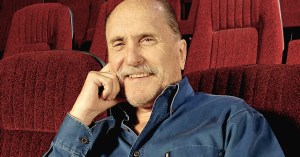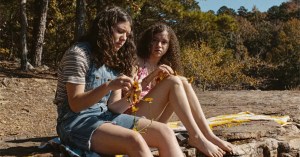Diane Lane on Untraceable: The RT Interview
The actress on her FBI role, technophobia, and keeping perspective.

The Internet is the setting for methodical killings in Untraceable, the latest nail-biter from director Gregory Hoblit (Fracture, Primal Fear), but we already know cyberspace comes with its pros and cons. The good? Movie reviews at the click of a mouse (gratuitous self-promotion: check!). The bad? Identity theft, spam, and predators. But what if those offenders were also psychotic murderers, combining the anonymity of the internet and our inherently morbid curiosities to create a traffic-driven killing machine that inflicts more and more pain with each increasing page view?
In Untraceable, Diane Lane — one of the world’s most gorgeous forty-something actresses — goes into Jodie Foster mode as FBI Agent Jennifer Marsh, a cybercrimes specialist whose workload of kiddie porn cases and credit card frauds get pushed to the back burner when a Portland-area killer begins kidnapping people and webcasting their deaths, live on the internet. Rated R for gruesome violence, Untraceable indeed boasts a number of skin-crawling scenes but more importantly questions the limits of freedom in an age where anyone can broadcast anything without leaving a tangible trail.
For Lane, a self-described technophobe who lives quietly outside of Hollywood with actor Josh Brolin and their family, Untraceable is a foray into relatively new territory: the realm of the tough female enforcer. Though she’s been acting since the age of 13, hard-edged roles have been rare for Lane (save a turn opposite Wesley Snipes in 1997’s Murder at 1600) and, as she notes of her latest, “It’s not Must Love Dogs!”
Lane talked to RT at a roundtable interview about her pistol-packing role, societal desensitization to violence, the parity of realistic portrayals of women in movies, and what it’s like having not one, but two career revitalizations at the same time in one celebrity household.
Is this movie “torturetainment,” like Saw or Hostel?
Diane Lane: It’s not a horror movie; it’s a thriller…and I think if anybody’s [torturing people for fun onscreen] they deserve to be stopped by somebody as nice as me.
What was the appeal in playing this female FBI agent?
DL: I like the fact that she was a working woman, and that her job exists and she is real. The need for angels online to intervene with bad guys online is sad, but when I visited the FBI and spent time with this woman who was my role model, she was amazing. She dressed better, she had better hair, she looked great — she just carried herself with dignity, and with style. You could be anyone at a keyboard and a screen doing her job so it’s a non-ageist, non-sexist profession. And yet here she is, a mother of teenagers, the kids are doing great, and I was just very impressed with the need for her job and the fact that she was the one doing it.
So for me, that was a piece of information that I never had before. My references were all from the movies, and they didn’t look like her. I went and got the clothes that she was wearing, and they said “No, it’s too nice. You have to play it down a little, because maybe it’ll be distracting for the audience that FBI people dress well.”

What was it like spending time with the FBI?
DL: That was fun! That was the most fun I had in this experience, as you can imagine, but the preparation was really fun. The firearms training days — it’s fun firing off large ammunitions! — it has a thrill, [but] I found out I’m not a very good shot!
Were you shocked by some of the things that you ended up seeing on the internet in your research?
DL: Yes! I was very shocked. It validated my technophobia, and I’m back happy in blissful ignorance.
Do you let your children go online? That’s the scariest thing, isn’t it?
DL: You know, being a parent is just so fun these days. There’s an alternate universe that kids feel is theirs, they’re entitled to it, and it’s a great big world out there and they’re gonna inherit it anyway. So you try to instill a good Jiminy Cricket and hope that they make good choices. I’m just a tour guide.
No Country For Old Men has been criticized for being extremely violent, but the violence in that movie seemed subdued compared to Untraceable. What do you see in this culture about where movie violence is going, and your place in it as an actor?
DL: I think it’s a statement of our times, and I am a girl of my times. I don’t want to live in a bubble, in my craft or in the world…I can’t, I would be cheating myself out of my generation and the world we live in. I love how uncomfortable everyone is, because that tells me I made the right choice. I think comfort is kind of overrated, and if I’m worth my salt in this business it would be because of the diversity of roles I’ve been able to pull off, hopefully. I was thinking about all the different parts I’ve played recently, and I thought, that’s why I felt so challenged by the offer. Because it was kind of a dare, and I knew that if I didn’t do the film, someone else would.
I didn’t want to chicken out, because when I had my criteria in front of me, the main ones were it’s not misogynistic, it’s not a sexualized kind of negative message, and there’s no subjugation of women — the poster is not going to be offensive to me, and it’s not going to be out in front of a kids’ playground. This is an R picture; those [audiences] are the people that are entertained, and it’s the entertainment industry. I’m not in a ballet here! And even some ballets deal with pretty tough issues if you were to film it rather than do it poetically with pirouetting. So, this is this story, this is this movie, and it’s not Must Love Dogs!

What does the film’s premise — a killer sets up a website with death traps that run on the curiosity of viewers — say about society?
DL: I like the fact that it brings up debate on that subject. I like the fact that it raises some hackles and makes people afraid, because for ten bucks and two hours in the dark, you’re going to a thriller and you ought to be afraid. I like the fact that the premise was intelligent, within our time; I think ten years from now, we’ll have other concerns and this one will be in a bubble of current…nowness. So in that way it’s very zeitgeist-affiliated. But I remember different times and different concerns, and how of their time they were. I just watched this show recently with my kids, and we were looking at the Cold War bunkers that still exist, and the “high tech” things that we had to communicate with our allies; they made this thing [holds up a journalists’ recorder] look like it came from a space ship. And so, how we got here as a species — I marvel every day that we haven’t screwed up even worse.
Do you and your husband (Josh Brolin) read each others’ scripts and say, ‘I think this will be good for you?’
DL: No, but maybe we should! I think that’s where angels fear to tread, to come between an artist and his art, or an artisan and his craft, or somebody who’s got a wild hair to take a dare and do something that is out of character for some expectation. And in some ways that’s the very reason that you’d want to do it.
When No Country started causing a sensation, all of a sudden Josh got hot again…
DL: 24 years in the making…I know a little about that! Honestly, nothing changes. The topic of conversation is probably a little more work-oriented than before. But it sure feels great to be having success and reward for your work. I mean, it’s a crapshoot. Who knows when you’re going to be in a classic film, who knows if you’re going to be in a financially successful film, who knows if you’re going to be in a cult hit? Who knows if you’re gonna be in something nobody’s going to remember? Nobody intends to make…if they wanted to do it on purpose they would, all the time. So there’s an element of gratitude that goes with something fortuitous, and that’s good to have in the house. What’s good for the goose is good for the gander, they say, and I agree.
Is there any trepidation that you’re carrying this movie, and that it might fail?
DL: Bring it on! What can I say? If there was trepidation, I guess I got over it because I did it, and there it is. I guess that’s one of those things where it’s sort of a greyhound race and I’m chasing a mechanical rabbit and I can’t really engage in that because it’s too objectified for me. For me, I don’t even like to promote my films but I have to because it’s in the fine print of my contract (smiling)…I just like to do the film, and then “oh, it’s coming out!” Some people track their movies; I just hide under a rock.
Untraceable is in theaters today.






